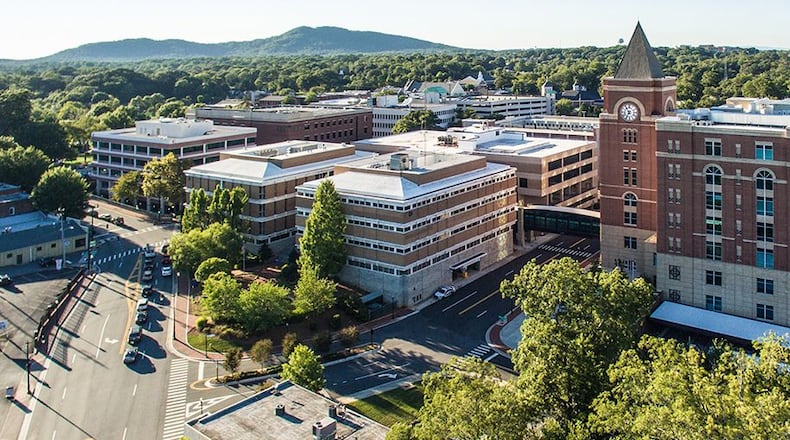Cobb residents are divided over whether the county should raise taxes to fill a widening budget gap.
When faced with a similar problem last year, commissioners agreed to use $21 million in one-time money. One of county's rating agencies took notice, and issued a warning to Cobb.
Now, Commission Chairman Mike Boyce has proposed an increase in the amount of taxes collected on property for the general fund. He calls his proposal a “sustainable” millage rate that will set Cobb, a growing county, in the right direction for 2019 and beyond.
The threat of cuts if the county doesn't raise taxes has galvanized support for such a move, particularly among those who fear austerity measures could affect libraries, parks and community groups like the Master Gardener Volunteers, a program of the UGA Cobb Extension.
But some residents are pushing back, citing a record high tax digest and what they characterize as irresponsible budgeting. They worry about the impact on seniors and others living on fixed incomes.
A complicating factor is Cobb County Government’s unusual fiscal year, which starts Oct. 1 and runs through September 30. The tax rate is not adopted at the same time as the corresponding budget. On July 25, commissioners are scheduled to vote on a 2018 millage rate and a 2019 budget. Next summer, the board will adopt a 2019 millage rate.
Boyce has held a series of well-attended town hall meetings over the past several weeks to present his argument for raising taxes. Community groups representing parks, libraries, and the extension have also turned out at commission meetings to urge the board not to abandon their programs.
Cora Berragan, a teacher at South Cobb High School, described at one such meeting how the Master Gardeners program helped her and her students plant a vegetable garden and rehabilitate a greenhouse on campus.
“Once the garden was planted, we proceeded to use the garden for learning, and learn the students did,” she said, adding that her student’s academic performance “soared,”
“We take pride in knowing that Cobb is the best county in metro Atlanta,” she said. “You cannot let it go without the far-reaching services and access to information that the extension, the libraries and even our parks provide.”
But many people don’t buy the chairman’s argument. Several dozen residents held their own meeting Friday night at the Cobb County Republican Party Headquarters to discuss how to thwart a tax increase that seemed increasingly likely.
Terry Anderson, a retired information technology professional from West Cobb, said he had been to several of the town halls hosted by Boyce and didn’t trust the information presented.
“We’re being fed a bunch of hogwash and they think we’re too stupid to know the difference,” he told the crowd, which nodded in agreement.
Several speakers argued for cuts and reallocation of SPLOST money, and pointed to a series of decisions that they say exacerbated Cobb’s money problems.
These include passing a new salary scale, approved last year, which increased payroll by more than $10 million. The commission also voted last year to take on additional debt to buy parkland—another $3 to $5 million a year.
Then there's the more than $8 million the county pays annually for the Braves stadium.
Critics also say the board hasn't planned well. For example, construction of the new Sewell Mill Library and Culture Center was funded by SPLOST, but the commissioners didn't budget for the cost of operations.
Debbie Fisher, one of the organizers of the event, said Boyce was manufacturing outrage over the parks and libraries in order to push his tax hike through instead of looking for efficiencies.
“That threat to take away the things that we desire I think is his solution,” she said.
Fisher also questioned the county's decision to schedule the hearing and vote on the millage for a Wednesday—commission meetings are usually held Tuesdays—the day after Commissioner Bob Weatherford will face challenger Keli Gambrill in the Republican primary runoff for the District 1 commission seat.
A spokesperson for the county said the chairman didn’t want to schedule a long meeting on a night when election returns come in out of consideration for the candidates.
Boyce, for his part, said in a recent interview that his town halls are going well.
“We have of course a hard group of people that say no to any kind of tax raise,” he said. “We have a new group of people who say we went to your town hall and we support the millage rate increase.”
About the Author
The Latest
Featured



